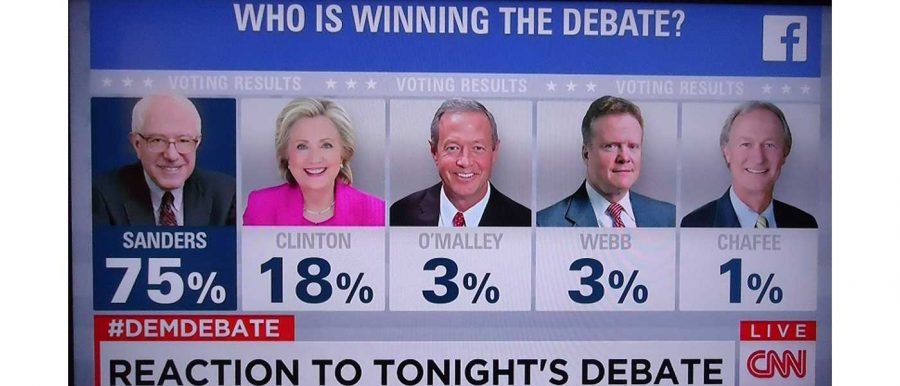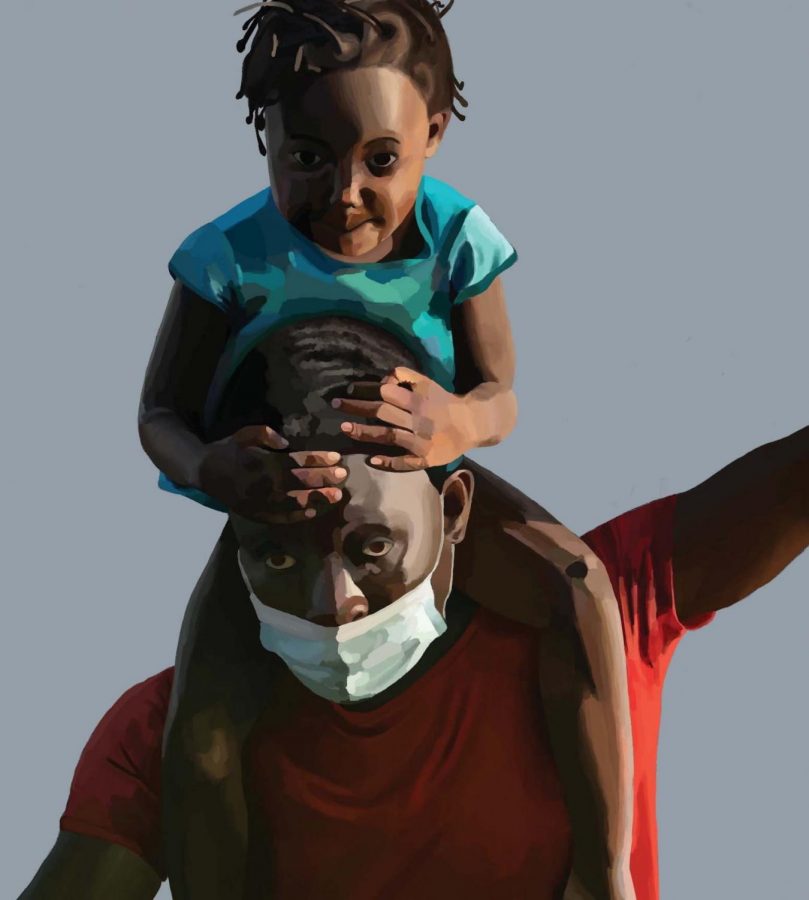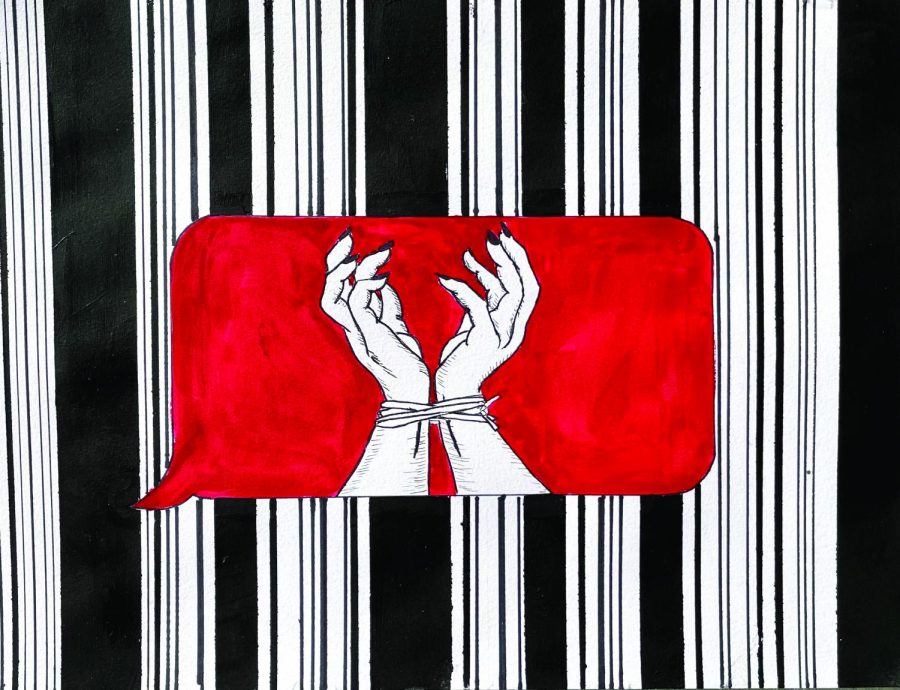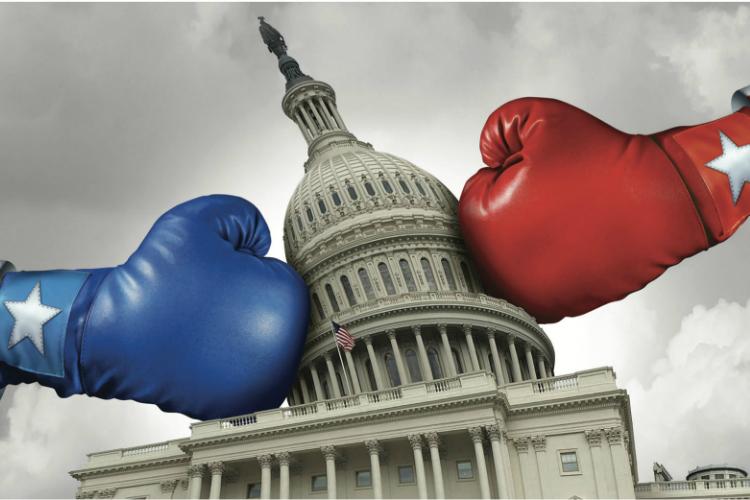Following the first democratic debate on Tuesday, Oct. 13, which featured candidates Hillary Clinton, Bernie Sanders and Martin O’Malley, as well as Jim Webb and Lincoln Chafee who are no longer in the race, the American public took to social media and various blogging websites in praise of Bernie Sanders’s performance. Polls from online media such as Slate, 9News Colorado, Fox5, the conservative Drudge and the liberal Daily Kos all displayed, in an overwhelming majority, that Sanders cleaned the house.
However, mainstream media, such as CNN, The New York Times and Vox, all reported that Clinton swept the polls. In an article released on the morning of Oct. 14, CNN stated that “Hillary Clinton proved without a doubt Tuesday night why she is the Democratic Party’s presidential front-runner,” despite the fact that CNN’s poll on Facebook, co-host of the debate, showed that 75 percent of their viewers believed that Sanders won, while only 18 percent believed that Clinton won.
Certainly, determining the winner of a presidential debate is a task associated with heavy opinion. Not every news source will have similar results or positions towards certain candidates, and it’s difficult to determine how reliable online polls are since they might only be taken by passionate activists. Nevertheless, many supporters of Sanders grew speculative of CNN’s news coverage and suggested that it was pushing a certain narrative in favor of Clinton: Sanders supporters claimed that CNN was deleting their comments off the Facebook poll and also discovered that CNN is owned by Time Warner Inc., which is Hillary Clinton’s seventh largest financial supporter. Some also expressed a belief that CNN doctored the post-debate poll results that appeared on the CNN website.
[socialpoll id=”2314178″]
These uncertainties and speculative theories raise an important question: can mainstream news media be trusted?
President of the Young Republicans Club and senior Juliette Turner believes that journalists and news anchors should deliver impartial news to the public, a responsibility that comes with the profession.
“The media’s job is to present both points of views fairly, to represent the facts, not to prep candidates out and not to sway results. When they start doing that, it gives people false impressions about who’s who, and they end up deciding the election before the people can,” Turner said. “That’s not what we’re supposed to be in America.”
Although ethical journalists should do their best to provide fair news, many media outlets are privately owned companies and therefore have every right to display a bias at their discretion. According to Upper School history teacher Tracy Walder, it’s nearly impossible to be unbiased in journalism.
“The reality is, you can never take people out of the mix. People are going to do what people want to do, whether it’s Ted Turner donating billions of dollars to Hillary Clinton’s campaign or the owner of Fox news supporting Republican candidates. It is what it is,” Walder said. “We have freedom of speech in this country, and we can’t tell the owners to not do that. One thing we can do though, is make the biases of each of the media outlets known.”
Many of the articles that discussed CNN’s biased actions came from other biased news sources such as the conservative Bizpac Review and the Bern Report. The fact that these two media outlets, one that is conservative and another that is a Sanders supporter, are claiming that CNN falsified poll results casts doubt on the validity of such a claim. As a result, something that should be taken seriously is not given enough attention.
“It is shedding a light on the fact that the media is biased, and you really can’t trust the results from, quite frankly, anyone because everyone has an agenda,” Walder said.
These biased news sources certainly have a large influence on the public, but according to President of the Young Democrats Club and senior Aleena Tariq, this isn’t a negative aspect.
“The media having influence is not a bad thing. I think the way they might use it might be a bad thing,” Tariq said. “They have a lot of power.” She believes that if the media were to “use that power to shed light on candidates that don’t necessarily get a lot of attention,” media influence would be less of a problematic issue.
While there may not be a feasible way to take the bias out of the media, Turner emphasizes that the media should make a conscious effort to separate fact from opinion.
“One of my favorite shows is the Special Report that comes on at five o’clock [on Fox news], and the news anchor is really unbiased. He presents the facts, but he brings people on in the last 15 minutes to present their points of view. I enjoy hearing that as well because it helps me make an informed decision and hear what people who agree with me and disagree with me are saying, so then I can better improve my argument,” she said. “You can benefit from biased media, but you have to be able to hear both points of view, and it shouldn’t be presented that that is the fact.”
Citizens can also make an effort to receive fair news by reading similar information on multiple media outlets, which would allow the public to understand that multiple opinions exist. In order to remained well-informed, Walder reads BBC, Fox, CNN and the AP. Unfortunately, not many Americans would do the same.
“I’m not sure that everyone has that kind of time or if everyone has that kind of desire because I’m not sure that the American public wants to hear the other side,” she said. “I think here at Hockaday, it’s kind of instilled and taught in you to at least be respectful and hear what the other side has to say. I’m not sure that the rest of the American public feels that way.”
However, when it comes to politics, remaining informed about the candidates is crucial. Turner believes that the best way to do this is through the candidates’ websites and interviews that the candidates have done.
“Listen to them first-hand, not what people are saying about them because that’s when things get muddled.”
Tariq stresses that the general public should be more aware of the biases in the media, as this can lead to more informed voters and citizens. Additionally, she encourages others to listen to multiple media outlets.
“If you just watch Fox, try CNN. If you just watch CNN or MSNBC, try Fox. You can always learn something from someone who disagrees with you,” she said. “Diversifying your news intake could be really valuable.”
Juliette Turner, Aleena Tariq and senior Kate Clement have started a blog called The Voice of the Future in hopes of presenting the facts from all points of view. Check it out here: http://www.voiceofthefuture.org/blog/
If you would like to write for the blog, email Turner, Tariq or Clement at: [email protected], [email protected] or [email protected]
To learn about the presidential candidates, go to the Fourcast‘s elections page.


















